(January 10, 2023) On a bone-chilling night in February 2022, Amit Kailash Chandra Lath received a call from the Embassy of India in Poland to arrange for the accommodation of 250 Indian students stuck at the Ukraine-Poland border. The very same morning, Russia began its invasion of Ukraine, thus leaving thousands of Indian students in panic. Many just grabbed a handful of essentials and marched more than 50-km to reach the border for safety. Understanding the gravity of the situation, the Indian industrialist, who has been in Poland for over 23 years, frantically started calling many hotels across the border cities of Poland. “It was chaos, with many Ukrainians fleeing the country to take shelter in border cities of Poland, finding accommodation was becoming difficult. Many hotels were charging as much as €400 per night,” Amit tells Global Indian.
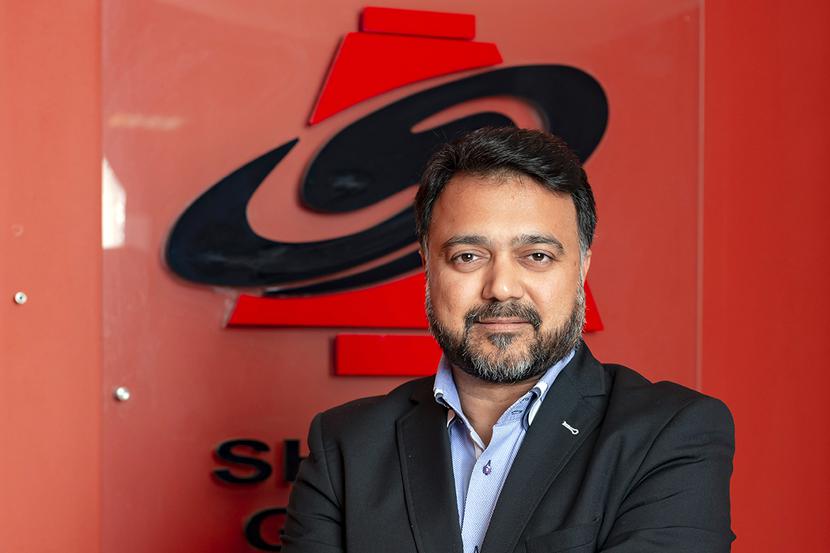
Amit Lath is an Indo-Polish industrialist
After six-seven hours of endless calls, Amit found his “right contact” in Stanislaw Mazur, a hotel owner and a doctor by profession, who agreed to help. “In just three hours, his team magically transformed a convention center into a dorm with a few hundred beds. Secured on this front, we soon started looking into catering, giving strict instructions to the head chef on Indian food behaviour and menu,” says Amit, who played a pivotal role in helping evacuate thousands of Indian students fleeing Ukraine. His tireless work for those two weeks, helping every Indian making it to the Poland border reach India safely, has earned him the Pravasi Bharatiya Samman 2023.
On January 10, 1999, Amit boarded a plane to Poland with dreams of expanding his textile business in Europe, and exactly twenty-four years later, on the same day, he received the Pravasi Bharatiya Samman from President of India Droupadi Murmu in Indore. “Life has come full circle,” Amit remarks, humbly adding, “It’s a proud moment for the Indian diaspora in Poland. I might be the one who is receiving the award, but the entire diaspora played a key role. I was lucky to be in the right place at the right time.”
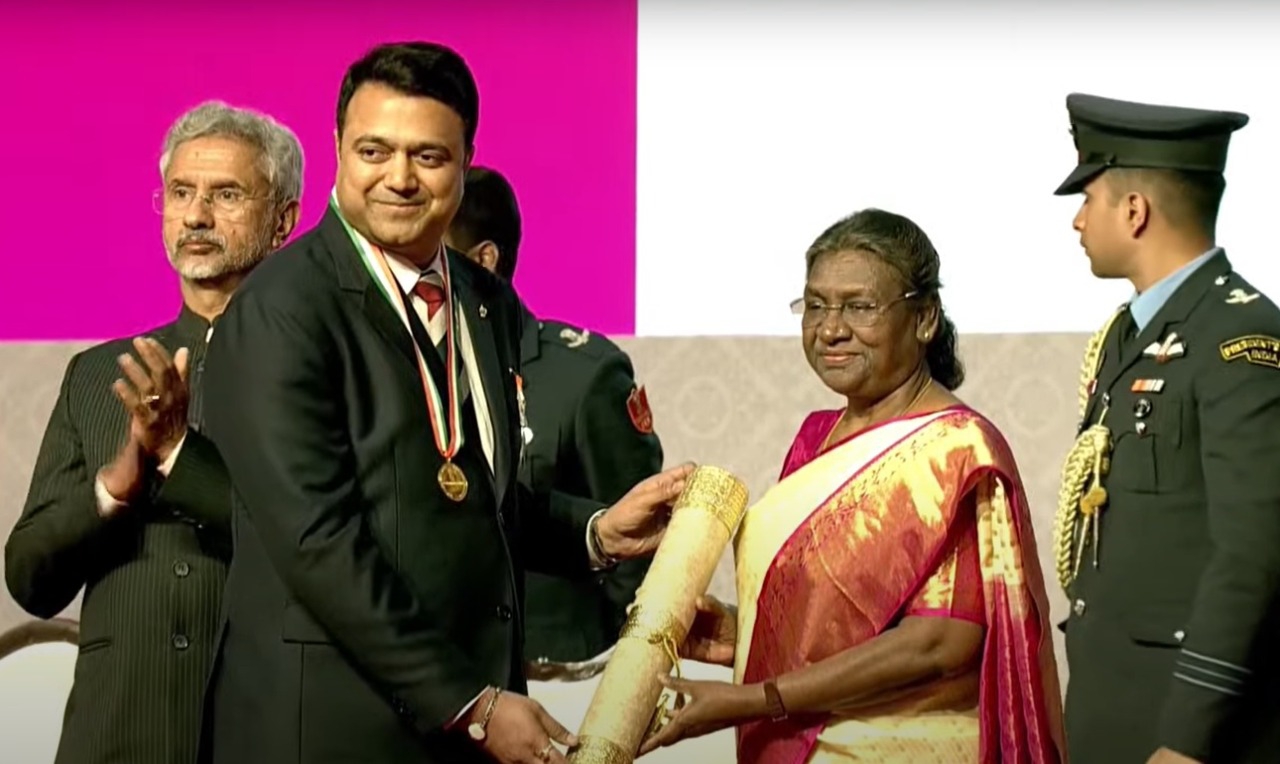
Amit Lath received Pravasi Bharatiya Samman from President of India Dropudi Murmu
Mumbai to Poland – the big dream
Coming from a typical Marwari family based in Mumbai, Amit was as young as seven when he first started accompanying his dad and family members to the office on several occasions. “They would lure me with a burger or food of my choice, and ask me to come to the office at times for the fun of it,” he laughs, adding that it was the beginning of his training. “Even for vacations in the 80s, we would go to our factories in Rajasthan and Madhya Pradesh. That was my preparation ground, and by the time I turned 15-16, I had a decent idea about the product. It gave me enough confidence to expand our textile business to Europe at the age of 22,” says the CEO of the Sharda Group, who moved to Poland with a degree from Sasmira’s Institute of Design and Textiles.
Determined to do something different, he landed in Poland in January of 1999, but moving to a new country came with its set of challenges. The extreme weather was one of the initial hurdles, followed up by a dearth of vegetarian food and of course, the language barrier. “But I began learning the language soon, and in six months, I was well-versed in the basics. Also, back then, the Indian diaspora was just 400, but they did make me feel at home.”

Amit Lath is the CEO of Sharda Group of Companies
Putting India on the global map
For the next few years, with a clear focus and goal in mind – to make Sharda Group a known entity in the EU – Amit started making remarkable progress in his business. Such has been the impact that it became the first Indian company in Poland to be nominated in the list of FORBES Diamond 2012. While he made a name for himself in the Polish business world, Amit was also spearheading Indo-Polish ties. However, he instantly corrects me, “Indo-European ties.”
“We have a strong standing across 27 countries of the EU. And now people have also started understanding India. We did a New India campaign a few years ago, telling people how India has gone beyond expansion and technology. It’s not the India that their forefathers might have told them about. At every possible opportunity, I made sure to get people acquainted with India, through my conversations,” says the VP of the Indo-Polish Chamber of Commerce and Industry in Poland.
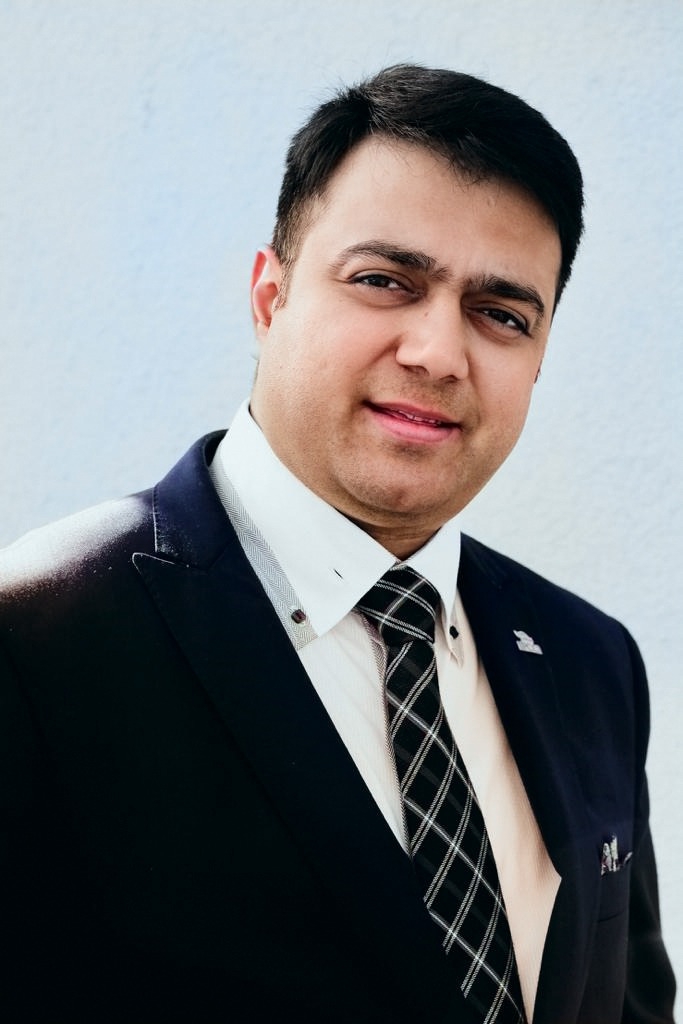
Amit Lath has been in Poland for 24 years now
The past two decades in Poland have been a learning curve for Amit. Recalling the initial years, he reveals that many Indian businessmen back home were skeptical of starting a business in Poland as they often asked if the country was safe as they had heard that the Russian mafia was active. “I told them it was all nonsense.” Things started looking up when Poland became a part of the EU in 2004, and many Indian business houses made their way to Poland. From big MNCs like Infosys and HCL to UFlex and Escorts setting up their offices, Indian businesses started growing in Poland. Thanks to this, Poland now has a thriving Indian diaspora of 45,000 people.
Operation Ganga
It’s this same Indian diaspora that Amit credits for playing a pivotal role in helping the Indian government during Operation Ganga – an initiative to bring back Indians stranded in Ukraine. “While I was coordinating, many Indians and Polish came out to help the Indian government. But it was under the leadership of Gen VK Singh and the Ambassador of India that it was made possible,” says Amit, who relentlessly worked with the Indian government for two weeks until the last Indian was sent back.
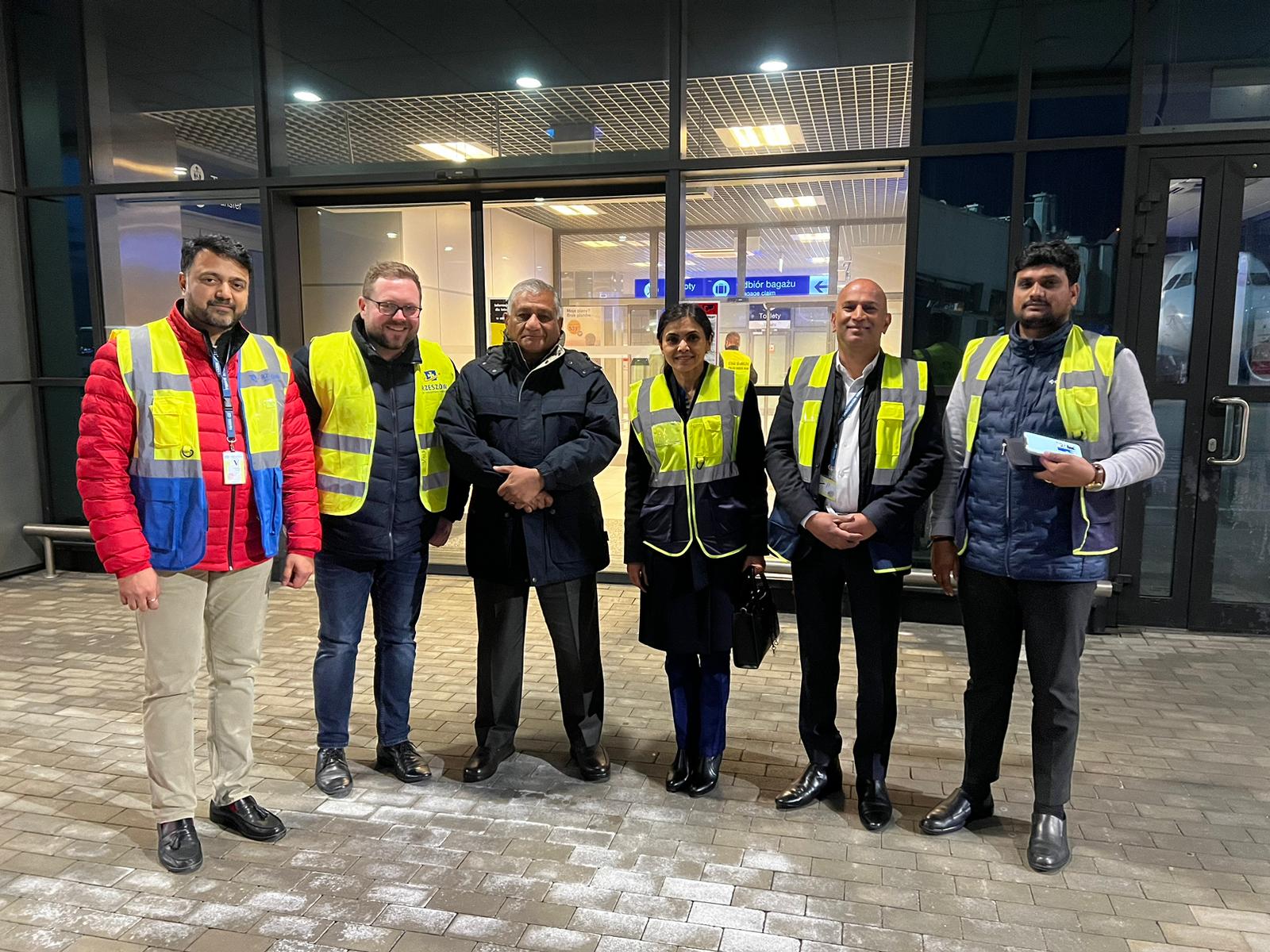
Amith Lath with Gen VK Singh and Operation Ganga team
The Indian government, meanwhile, had requested the Polish counterparts to allow Indian students to enter Poland without a visa on humanitarian grounds. Some exceptions were also made for students who were just carrying photocopies of their passports as they left behind their originals in a rush. “Poland shares eight land borders with Ukraine, and students were walking in cold for days to reach the Poland border. So, we ensured that once they are in Poland, they would be taken care of. A team of 30 doctors was arranged in the hotel as many had gone through mental trauma.”
Those two weeks kept Amit on his toes as each day came with a new set of challenges. “A student had a heart attack, we had a pregnant lady, and a student lost his memory due to PTSD (Post-traumatic stress disorder). We had to firefight every moment, but getting to see all of them board the flight to safety was worth everything,” says the 45-year-old who is all praise for Indian students’ cooperation. “The way they handled the situation was remarkable. We knew that their parents back home would be worried, and we made sure that they were comfortable till the time they were in Poland,” says the co-founder of the British International School of University of Lodz who likes to work with youth as they inspire him.
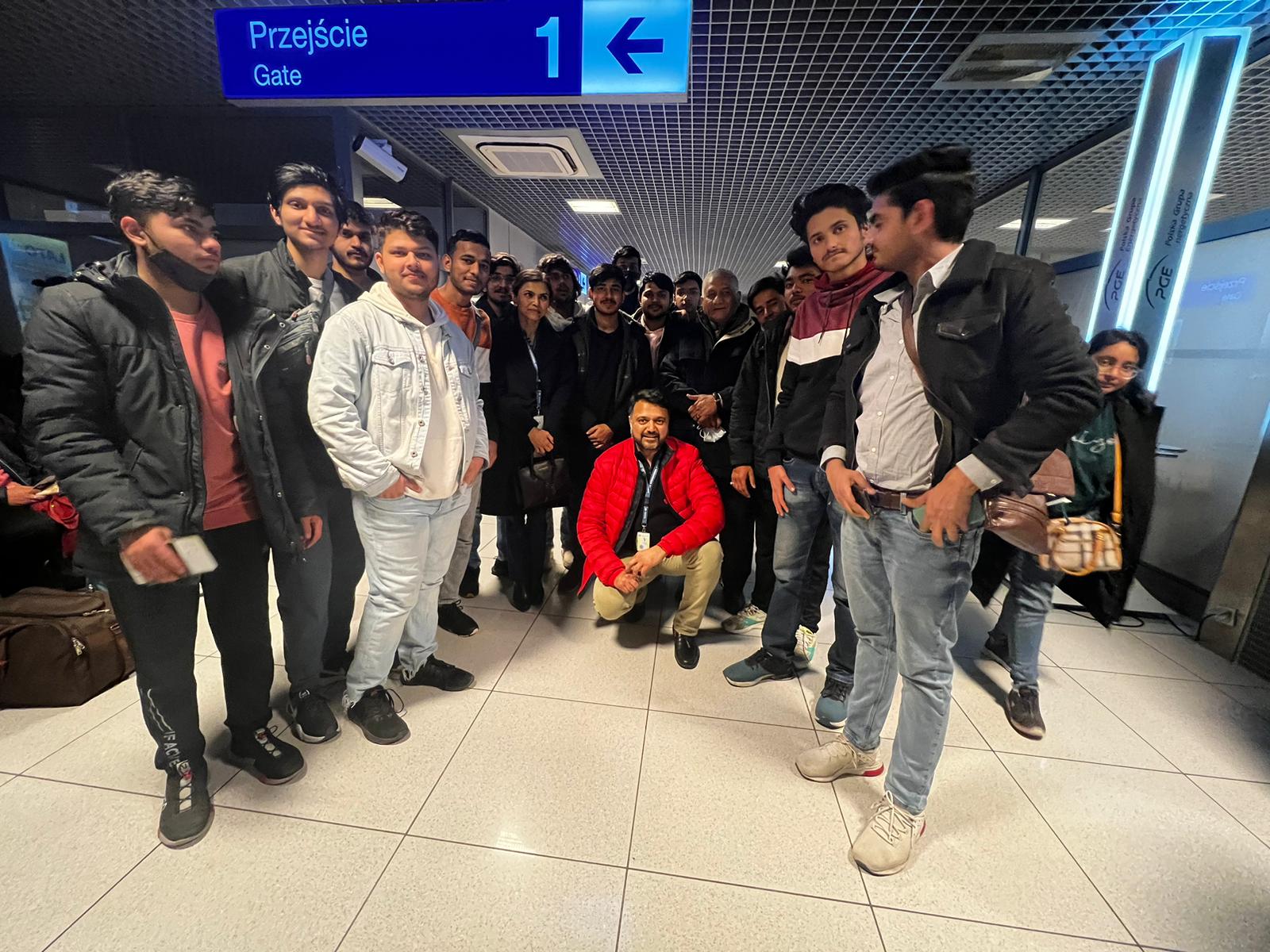
Amit Lath with Indian students in Poland
Interestingly, many of the Indian students who fled from Ukraine later enrolled in Polish universities. “We prepared a list of 15 Polish universities, and shared it with Indian media and several students, who could connect directly to them for admission, given the right documentation,” reveals Amit, adding, “Brand India makes a lot of difference globally, and this is proof of it.”
It’s been almost a year since Russia invaded Ukraine, and people including Indians made their way to Poland. Till now, more than 8.8 million immigrants have crossed the Polish border. “The way Poland opened its borders and arms for the people of Ukraine is commendable and emerged stronger as a member of the EU. It’s high time that the war ends.”

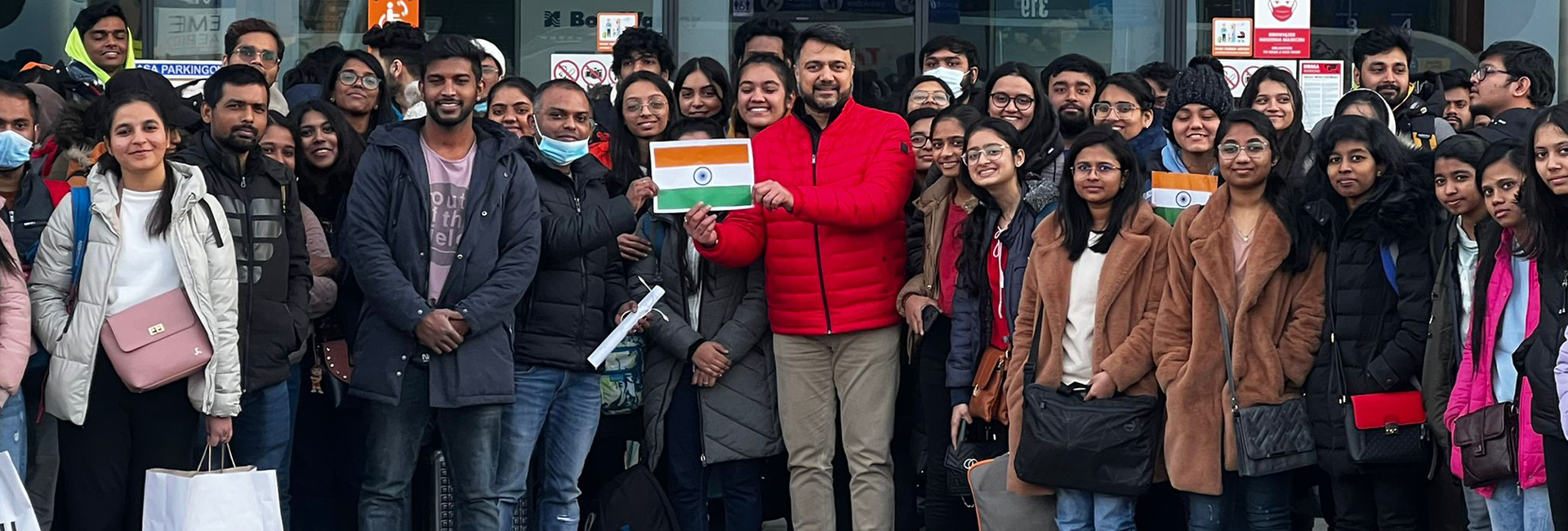
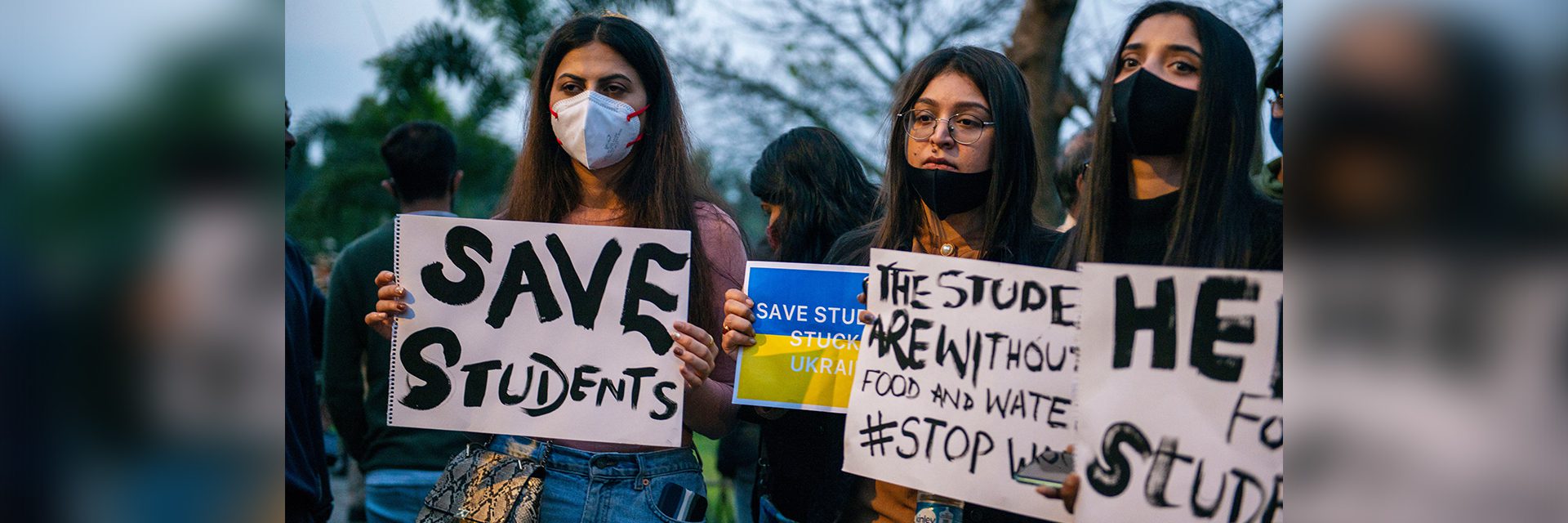
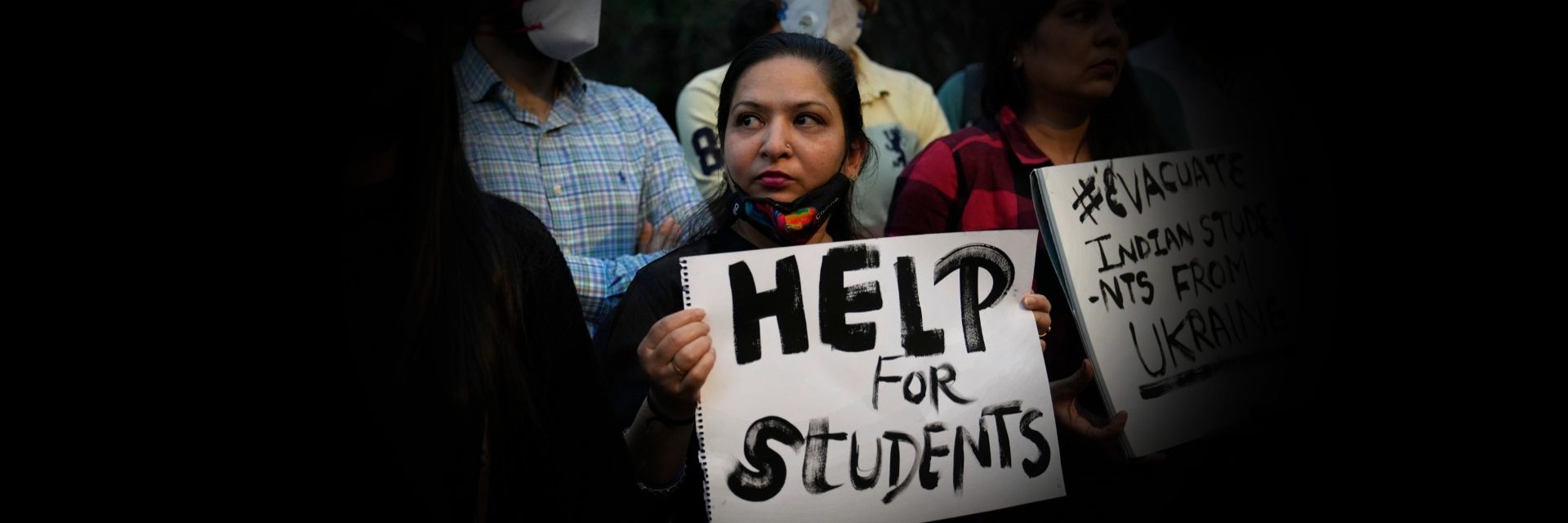
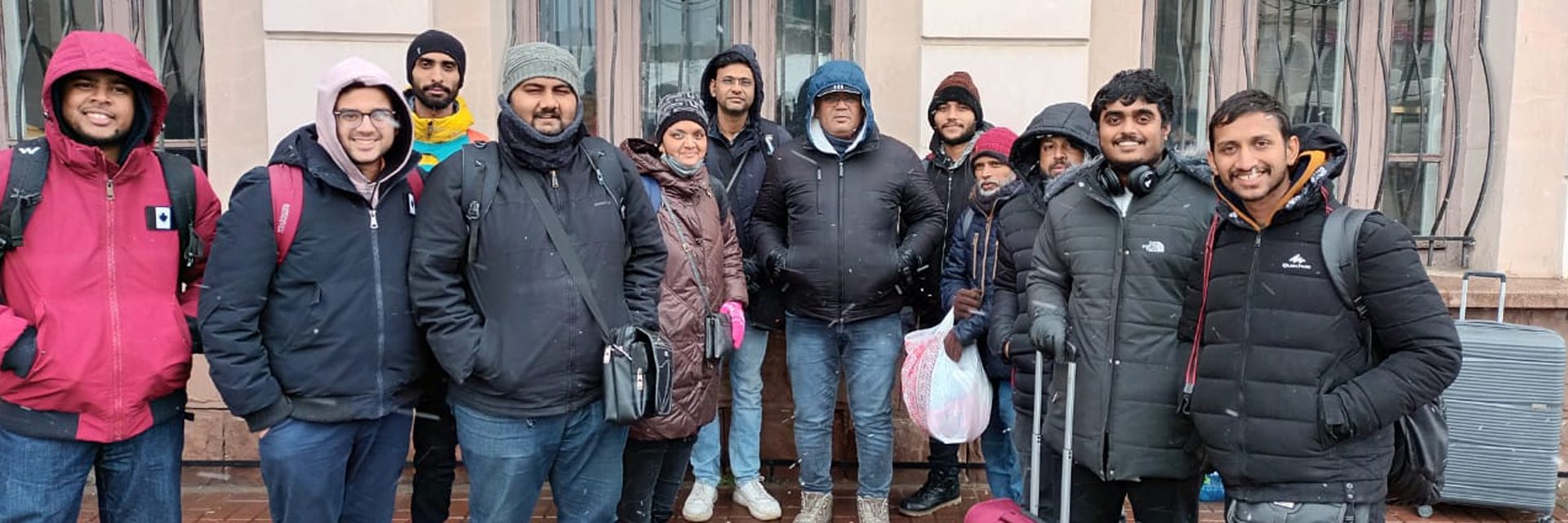
👍🏻